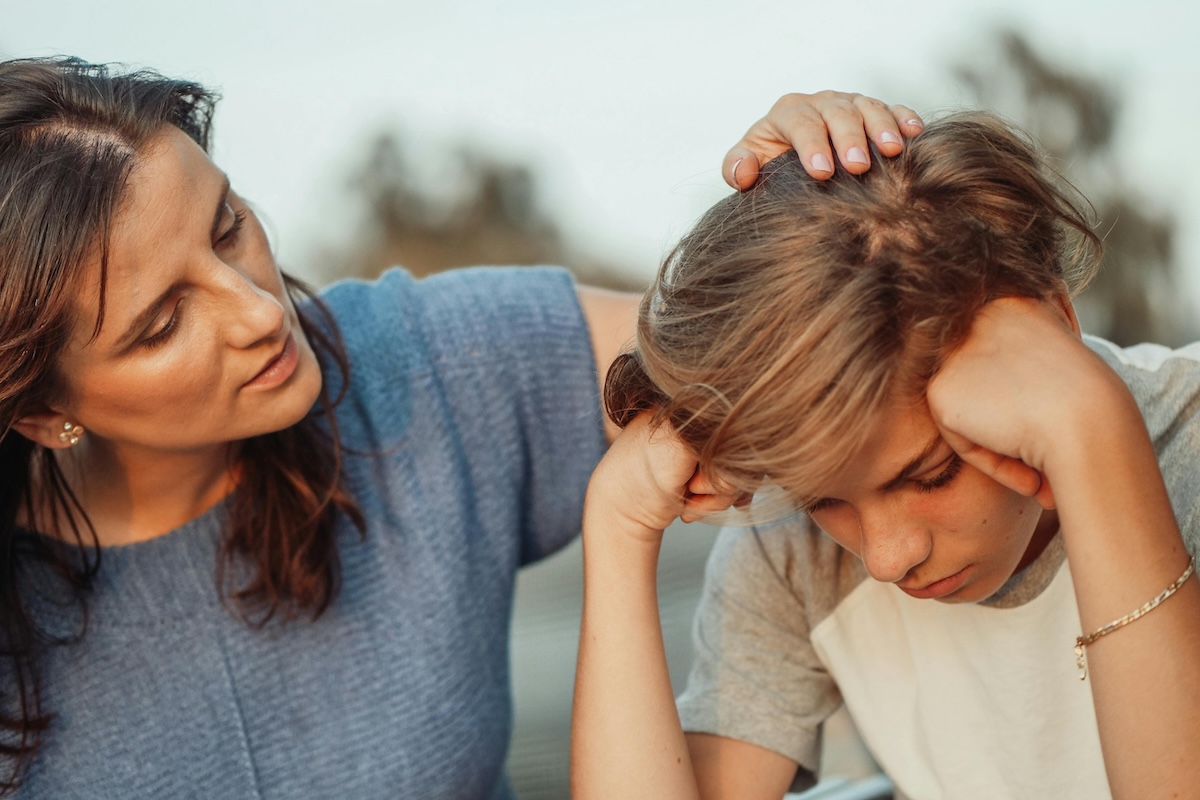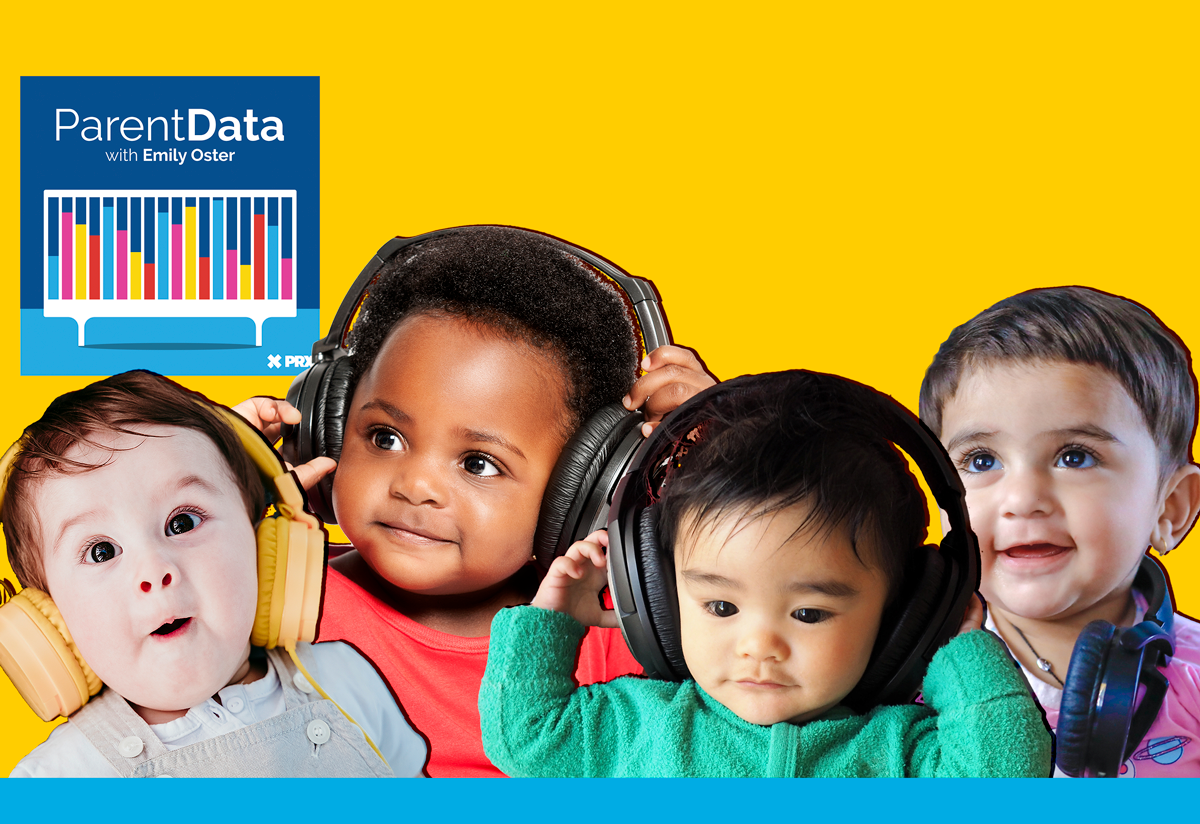Our favorite neighbors are moving, and I have not told my son. My son is close with their son, Jacob — they attend the same preschool — and the two of them are like puppies together: joyful, chaos-seeking, a blur of delighted movement almost painful to witness in its tender exuberance. The way they nuzzle toward each other when they hug, beaming, causes the grown-ups to blink back tears. Really. I am serious. I know I should tell him, but I don’t want to. So I don’t.
I would counsel another parent to tell their son about the move as soon as possible — yesterday, in fact. A large part of my job as a social worker who supports children and families entails helping adults deliver unfortunate news to children, and helping children survive unpleasant situations intact, if not unscathed. I have thought about telling my son for weeks.

I know empirically that children deserve information about sad, hard things. I know that, when confronted with a sad, hard thing, they fare better if they have context, and advance warning. These are facts: firm, immutable. But we can almost see Jacob’s house from ours; you don’t really need shoes if the weather is nice. You almost never need socks, or your hat. Jacob and his moms are moving to a new neighborhood less than three miles away. We will still see them, of course, but it’s hard not to agree when my seasoned older child points out, “It won’t be the same.”
Adult sadness and discomfort is awfully large. It has a tendency to squeeze out shoulds even facts. And here is another truth: kids are often sad already. There are no more Peanut Butter Puffins in the cereal box. It is bedtime. It is a school day. No, it is not your birthday. You must sleep in your own bed, in your own room. No, but really, it is now past your bedtime. The tears often feel constant, the damp and dreary weather of parenthood. Who wants to make them cry more? On purpose? I catch myself lowering my voice, leaning toward one of Jacob’s moms to advise about removing wallpaper at the new house as if discussing a sex cult.
I think you know why I have not told my son: because it will make him sad.
In my work as a social worker, I join people on their worst days. I once sat with parents in their living room and met their gaze as they looked at me unblinkingly. I had just told them that soon they would need to tell their children about the death of an immediate family member. This death was not imminent, exactly, but it lurked. It was certain. They nodded, slowly, their heads heavy with dread. One parent opened a mouth to speak, and I thought I knew what they would say: I cannot tell them without crying. It will be so painful. Instead, this: “But their behavior is already so awful. It’s just going to get worse.” I nodded, my dread swelling to meet theirs. Their honesty filled the room. We avoid that which is painful, yes, but also we avoid things that will make our lives harder. Sad children are not always easy children.
Death is, perhaps, the toughest sad, hard thing. It is tempting to skim over it, wait for the necessity to arise, and then dodge the details artfully when it inevitably comes up. If the cruelty of death is staggering in the abstract, a specific death is heartbreaking. Skirting around it — never bringing it up, answering questions briskly and evasively — seems easier (kinder, even) than painting a full picture of the grim cruelties of the world. Easier for our kids, and easier for us. But, of course, it isn’t easier in the long term. Frank information about death and its particulars is important for children to have access to. And while some questions don’t need to be answered until they are asked, children do need invitations to ask questions. Some information must be offered so that they know a topic is one that you are willing to discuss. Children should learn early on that death is universal — it happens to all living things — and permanent. Adults should use clear words such as death, dead, and dying, and words like forever and never. Words like loss and passing or the conflation of death and sleep (or rest) are confusing to small, concrete thinkers.
When children are very young, death can — and should — be yet another matter-of-fact feature of our world. It is like the moon; we might call their attention to it, even though we don’t live there: Look up and see! You might point out the fact of death when confronted with a corpse: “Oh look, that squirrel isn’t moving. It’s dead. Its body got hurt or sick and stopped working; now it’s not alive. It doesn’t move or think or feel.” You might point it out when confronted with a memory: “This necklace belonged to my grandma, Grandma Rose. She died when I was a big kid; I loved her very much, and I missed her a lot after she died.”
The answers to the questions of what a dead person does or does not experience, and what becomes of us after death, are personal. It is fair to say things like: “Nobody knows for sure.” If you believe in heaven, share those beliefs with your children in clear language.
All this is doable in the abstract. It becomes harder when a death is specific.
When my older child was small, an elderly relative fell ill. It was clear that soon she would die. Should we tell our daughter? my husband wanted to know. She knew this relative only a little — she lived far away. It was unlikely that her absence would be noteworthy when we next visited his family overseas. Of course, I said. My husband is practical, and compassionate. He did not argue. But his brow furrowed.
“Will we tell her that when people die they go to heaven?” My husband was raised in an observant Christian home; he himself is not remotely religious.
I looked at him firmly. “Do you believe in heaven?”
“No,” he admitted.
“Neither do I. So no, we will not tell her that she’s going to heaven.”
“But that’s awful. What will we tell her?” He looked ashen, as if this reality of death was suddenly too much to bear. I am not sure if he had himself given much recent thought to the harshness of mortality suggested by his now-godless belief system; he was confronted with pain, and a desire to keep such pain from our small, apple-cheeked daughter. This was hard. But being straightforward with her proved easier than lying.
Seared into my brain is the consternation of two parents who confessed, guiltily, that they had spun for their son an elaborate tale about the glories of heaven to soften the blow of the dog’s death. Their kid had a lot of questions, and their discomfort was growing. They felt deceitful. They squirmed. What do we do now? they asked. We don’t even believe in God. We were raised Catholic; we just didn’t know what else to say. He asks us all the time about heaven, the specifics. He wants to talk about it constantly. In such a situation one can backtrack, apologize, and set the record straight. I told you that because I was sad, and it’s an idea that comforts a lot of people. I don’t actually believe that heaven is real. But a lot of people do. I believe that after we die, life ends, and our bodies become part of the earth again. It can be hard and sad and even scary to think about death and what happens afterward, even for grownups. But we can always talk about this stuff.
We are inclined, sometimes wrongly, to fix things for our children: emailing teachers or coaches about spelling words that could be harder, friends who could be kinder. We offer suggestions and solutions, or let them know that the problem isn’t really a problem at all! It’s an opportunity! And here’s the silver lining! Heaven is so fabulous!! Maybe it is, I don’t know. But children do not need us to coat death in a slick candy shell. They need us to name it, invite it in, and admit — even if it makes us cry to do so — that it is an immutable part of living. I haven’t told my son about Jacob in part because I know that when I do, I will have to balance my desire to put a positive spin on it — he’s not leaving town! His new house will be so fun! — with my ability to accept his sorrow. The positive spin, in this case, has a time and a place. But it is, ultimately, spin. It is not the whole truth.
Everything can be discussed in a developmentally appropriate way — even the kind of questions that make palms sweat and prickle — and all questions asked by children of all ages deserve honest answers. “Do kids die?” is a question that makes parents flinch, and the gears of elision and evasion begin to spin. But one can tell the truth: “Sometimes, but it’s very rare. Mostly people die when they have lived a long life.” The question of what cancer is, or what happens to a body after death, can be answered simply, with accurate language that neither misleads nor offers vivid images that could frighten.
Older children or teenagers might want — or benefit from — more details. Ask them what they already know; would they like to know more? Normalize that it can be useful to have information, even if it’s gross or upsetting, but that there is such a thing as too much information. Very young children are often cognitively unable to grasp the permanence of death; this is not a reason to avoid the subject. It just means that you will need to repeat yourself, and that they may say things that are jarring or painful; your job is to offer a gentle and firm corrective, even in the face of your horror. (The goal, I should clarify, is not a placid poker face. You are human, and it is fine for them to see this. Your goal is for them to continue to ask you things, rather than privately and anxiously stew over their morbid concerns after you have turned out the light at night.)
But here is another difficult fact: you will not always say the right thing. Nor will your children always understand you, or internalize your words. You will, like my mostly-wise mother, tell your children that “maybe part of you goes to heaven when you die” and your children, like me, will be haunted by specters of dismembered legs cavorting amongst pink-tinted clouds. Or you will tell your children that the worms on the sidewalk are resting, because who can be bothered, and your mother-in-law is in town. Even in the unlikely event that everything you say is just right, you will not be able to communicate all of your thoughts on mortality in one conversation, and repetition is important. And so death must become part of the fabric of family life, something that is discussed both seriously and casually. Revisiting topics often ameliorates confusion, helps children understand new or difficult concepts, and invites them to vocalize their own questions or worries. The truth is, you just have to keep talking about death: inviting it to read-alouds, picnics, movie night. It’s eager to join you anyway, and if you allow it in, children can begin to understand and tolerate its unsettling reality.
An anticipated death introduces a new kind of pain into a family system, and requires specific kinds of care and intention when children are involved. Children should be given ample advance warning that a relative or loved one is going to die, and adults should resist the impulse to withhold information “until there are answers.” Answers do not always come, and a death without warning or an opportunity for goodbye is more painful than a death that was expected. Which is already terribly, terribly painful.
But when, exactly, is the right time? This is the question that no one will answer for you. I cannot answer it here, now, except to remind you that I should have told my son about Jacob’s move yesterday. I can tell you, too, that you will be tempted to tell them at bedtime, when their warm body is trustingly—and reassuringly—pressed against your own. Don’t. People often report that they wish they had told their children sooner that a loved one was going to die; few people wish they had waited longer. Sometimes the moment they choose feels just right; sometimes they cannot bear it one day, but the next day feels manageable. I know, I know: that is not an answer. Think out loud with people you trust. And know this: children need time to process such news. They may need to hear it more than once — a grim thought. Upon learning that a loved one will die, children might pull away from the dying person out of fear, sadness, revulsion, self-protection. Ideally, they would be given this information in time to pull away and then creep closer, spend time with the dying person, say their goodbyes. It is easier, even if not easy, if children living in close proximity to a terminal illness already understand that doctors cannot always cure disease. Sometimes people are too sick, too old, or injured too badly to continue living.
During this most recent dreary pandemic winter, my husband and I sat in front of the neighbors’ fireplace on Sunday afternoons and drank wine while the two kids battled lava, or Venom, upstairs. Sometimes the light fixture over their dining table flickered with the intensity of their defense, but it was okay. Everyone was connected.
Their front yard sports a trim For Sale sign, and still I say nothing: my son cannot read. I look at it as I walk by and dread the sensation of telling him. My feelings have gotten the better of me, and in a season of loss, I cannot bear to name this one. Then the house is sold; their move date is set. It creeps closer. I will, of course, suck it up and tell my son. Soon. So that he does not lose his faith in me, and so that he can mull it over before it changes things. At four and a half, his friend’s departure from the yellow house around the corner is hardly the biggest loss he’s faced, or will face. But he will be sad: perhaps very sad, perhaps just a little, fleetingly. But he is learning that all feelings can be named, endured, and will pass, or shift. It will sting a little to walk by that red front door and know that Jacob is not there. I will squeeze his hand, and then we will continue on our way, to the woods, or the farmers market, or the playground. We will carry on, confronting losses that are both tiny and massive, and beauty that is both prosaic and grand. Together.
Book recommendations (for preschool and younger elementary):
Lifetimes, by Bryan Mellonie, 1983
Simply written book about how all living things have lifetimes with beginnings and endings and living in between. Sometimes these lives are shortened.
I Miss You: A First Look at Death, by Pat Thomas, 2001
A factual book for younger children that explains what happens when a person dies (including mourning rituals such as funerals), and the feelings of sadness and grief that loved ones will experience.
Nana Upstairs, Nana Downstairs, by Tomie dePaola, 1973
An autobiographical picture-book account of the death of the author’s great grandmother and grandmother, the former when he was a child and the latter as an adult.
A Garden of Creatures, by Sheila Heti, 2022
Two bunnies and a cat live together in a garden. When one bunny dies, the other two are left to wonder why this happens, and to consider what can be done to ease the pain of grief.
Community Guidelines





















Log in